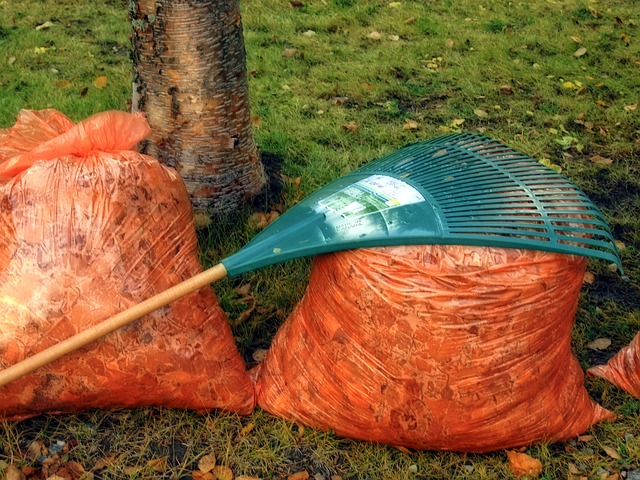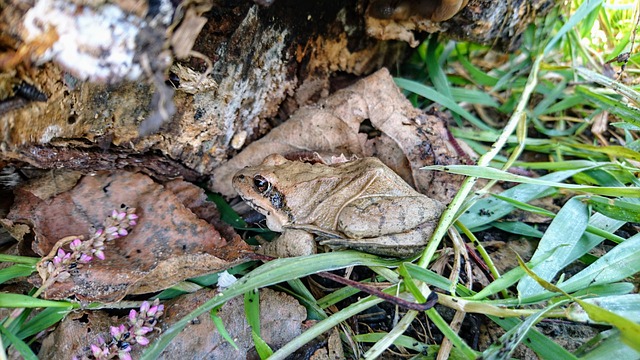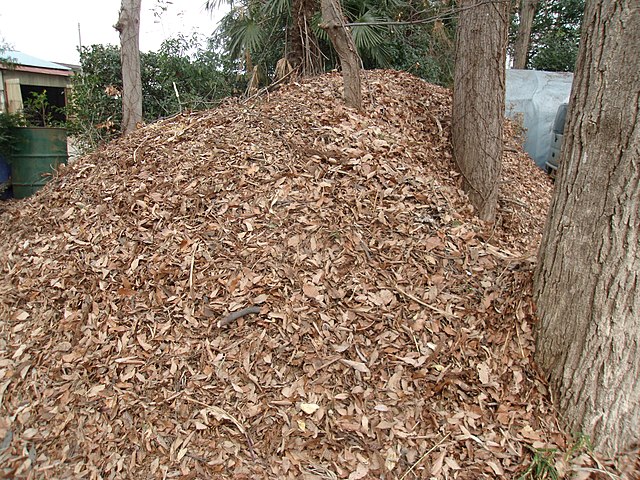 Summer is over, and Fall has arrived! Daylight savings time came to an end on November 6th, so we know that the season has truly changed.
Summer is over, and Fall has arrived! Daylight savings time came to an end on November 6th, so we know that the season has truly changed.
As leaves change color and eventually fall to the ground, many people will be picking up a rake.
But what happens to the leaves once you bag them? Where do they go? Let's take a look at how this fall tradition affects our climate.
How Raking Leaves Affects our Environment
Many creatures depend on fallen leaves to survive. Frogs and toads hibernate under leaves over the winter.
Although not directly related to leaves, a study shows North America has already lost 3 billion birds since 1970. Birds feed on butterfly and moth pupae that live in fallen leaves. Bagging leaves may cause birds to die. Leaving the caterpillars could help birds to survive. Removing leaves may also disrupt those pupae that are not eaten, decreasing the number of butterflies in our yards next spring!
 Fallen leaves are nature’s way of replenishing itself. Leaves provide nutrients that enrich the soil for growing plants in spring. Without the nutrients from decomposing leaves, lawns require fertilizer. Fertilizer runs off into water supplies, causing algae blooms that are harmful to humans and wildlife.
Fallen leaves are nature’s way of replenishing itself. Leaves provide nutrients that enrich the soil for growing plants in spring. Without the nutrients from decomposing leaves, lawns require fertilizer. Fertilizer runs off into water supplies, causing algae blooms that are harmful to humans and wildlife.
When leaves are blown into the street, they flow down drains and into rivers and streams. These water sources become clogged, and eventually, back up into streets. It also affects water quality in rivers and streams and harms creatures that depend on the water source.
When leaves are bagged and sent to the landfill, they produce a greenhouse gas called methane. Once released, methane contributes to heating the atmosphere, worsening the climate crisis. It’s important to note, however, that raking your leaves is not the problem - it’s what we do with the leaves that make the difference.
What Can We Do?
 Experts have suggested some ways to maintain your lawn, without bagging leaves. Running over leaves with a lawnmower can help cut the leaves into smaller pieces, allowing them to break down faster.
Experts have suggested some ways to maintain your lawn, without bagging leaves. Running over leaves with a lawnmower can help cut the leaves into smaller pieces, allowing them to break down faster.
You can then mix them into garden beds, and have free, eco-friendly mulch. Some cities even have composting programs, where you can send your leaves off and receive compost in return.
You can also just leave them on the ground. When leaves decompose, they add nutrients to your yard. Leaves contain nitrogen, phosphorus, and potassium. If leaves are allowed to decompose and return to the soil, it can eliminate the need for chemical fertilizer. However, you should be careful not to let too many layers of leaves pile up. One to two layers is enough, more than that won’t allow sunlight to reach the ground, and the grass will die.
Trying these alternatives is a good way to practice environmentally friendly habits. Just by not bagging leaves we can preserve the natural habitats of dozens of creatures. And it will cut down on all that time spent filling and hauling bags!
Sources: NPR, USA Today, NWF, The Weather Network







